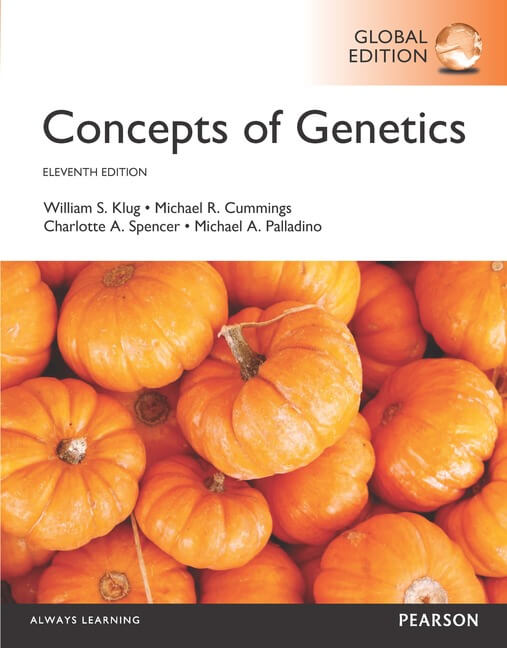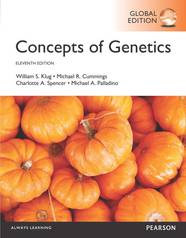Concepts of Genetics, Global Edition
Product details:
Pages:
912
Publishing date:
Publisher:
Cover:
ISBN:
9781292077260
Order
Delivery
Payment
Concepts of Genetics, Global Edition
Available
2530 uah
1200 uah
Pick Up from store:
Free
Pick-up point. KYIV. 14, Metropolitan Andrey Sheptytskyi Street (office Dinternal Education)
Free
Pick Up from your local Nova Poshta office: at the delivery service rates
According to the tariffs of the delivery service (all orders over 2000 uah are free from delivery cost)
Nova Poshta courier
According to the rates of the delivery service
Cash payment
Online payment via LiqPay
Payment on delivery
Cashless payment for individuals and legal entities
Product description
Reviews (0)
Description
For all introductory genetics courses.
Concepts of Genetics, 11th Edition emphasises the fundamental ideas of genetics, while exploring modern techniques and applications of genetic analysis. The best-selling text has a strong problem-solving approach, and this edition has been extensively updated with relevant, cutting-edge coverage of emerging topics in genetics.
Features
Keep Your Course Current and Relevant
- NEW! Three new Special Topics in Modern Genetics mini-chapters explore cutting-edge topics, including updated content on Emerging Roles of RNA, Genetically Modified Foods, and Gene Therapy.
- NEW! For all Special Topics chapters, a series of questions have been added to send students back into the chapter to review key ideas or facilitate personal contemplations and group discussions.
- NEW! Modern Approaches to Understanding Gene Function feature challenges students to understand how modern gene targeting approaches (such as the use of transgenic animals, knockout animals, and RNA interference) have dramatically advanced our understanding of gene function. Each entry highlights representative experimental approaches, analyses experimental data, and relates to a concept discussed in the chapter. Each feature includes questions for further analysis or discussion.
- NEW! Evolving Concept of the Gene is a short feature, integrated in appropriate chapters, that highlights how scientists’ understanding of what a gene is has changed over time. Since we cannot see genes, we must infer just what this unit of heredity is, based on experimental findings. By highlighting how scientists’ conceptualisation of the gene has advanced over time, this feature helps students appreciate the process of discovery that has lead to an even more sophisticated understanding of hereditary information.
- NEW! Chapter 24 Neurogenetics, previously entitled Behavior Genetics, has been completely reworked and redefined to reflect the wealth of information regarding the impact of genetics on the field of neurobiology, linking genetic analysis to brain function and brain disorders.
Motivate Students to Develop and Practice Problem-solving Skills
- Now Solve This Problems are integrated throughout each chapter to test student knowledge while learning chapter content. Exercises include a hint to guide students and a brief answer is provided in the appendix. One Now Solve This problem per chapter is now linked to related end of chapter problems to make it easier for professors to assign similar problems for homework.
- Insights and Solutions sections strengthen students’ problem solving skills by showing step-by-step solutions and rationales for select problems.
- Problems and Discussion Questions are found at the end of every chapter. Extra Spicy Problems challenge students to solve complex problems, many based on data derived from primary genetics literature.
- How Do We Know? questions appear as the first entry in the Problems and Discussion Questions and ask students to identify the experimental basis underlying important concepts and conclusions—that is, how we know what we know.
Emphasise the Fundamental Ideas of Genetics
- Key Concepts are listed within chapter openers to help students focus on the core ideas of each chapter. The key concepts are revisited in greater detail in the end of chapter Summary Points.
- NEW! Concepts Question is a new feature, found as the second question in the Problems and Discussion Questions that asks the student to review and comment on common aspects of the Key Concepts listed at the beginning of each chapter. This feature places added emphasis on the pedagogic approach of conceptual learning.
Engage Students in Active and Cooperative Learning
- Updated! Case studies at the end of each chapter have been updated with new topics. Students can read and answer questions about a short scenario related to one of the chap
Review list is empty
Please log in to leave a review










